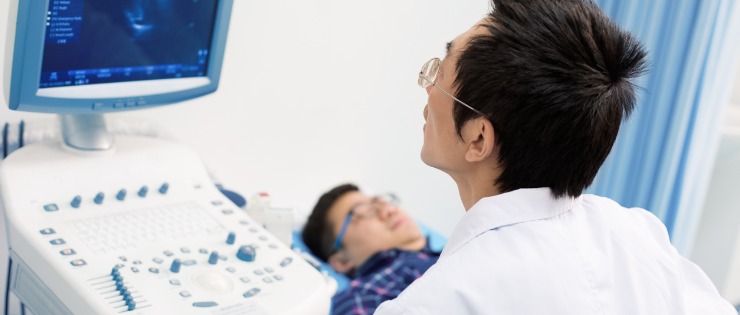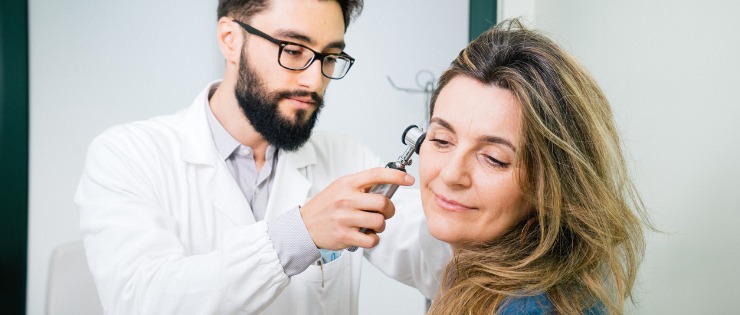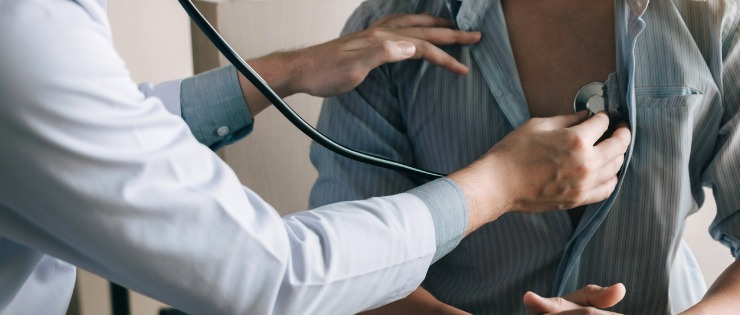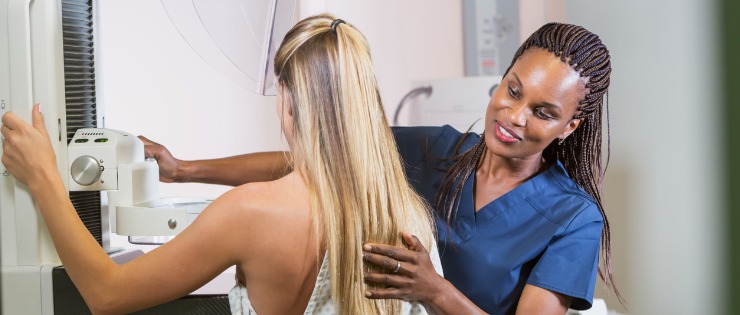Cervical Screening Test
Cervical cancer is one of the most preventable cancers. It’s recommended that women start cervical screening tests from the age of 25. The test detects the presence of HPV - a common sexually transmitted infection which leads to cell changes in the lining of the cervix that can cause cervical cancer. The HPV vaccine protects you against nine types of HPV but not all types, so it’s important for vaccinated women to have regular screening tests.
Testicular Cancer Checks
Testicular cancer is most common in men in their early 20s when the testes are most active with producing testosterone and sperm. When found early, testicular cancer is one of the most curable cancers. While some men have no symptoms of testicular cancer, a common symptom is painless swelling or a lump in a testicle. Self examination will alert you to any changes in the testicle that should be checked out by your GP.

Health checks you should consider in your 20s include:
Regular self examinations of your skin
Cervical Screening Test (for those who have a cervix)
Self examination of testicles (for those who have testicles)
General check-up if you’re planning a pregnancy
Blood pressure and cholesterol check at your doctor every two years
Regular checks for sexually transmitted diseases, if you're sexually active
Six monthly teeth examination and clean at your dentist
Health Checks in Your 30s
You’re no doubt feeling young and fighting fit in your 30s, but there are still a few health checks you should consider.

Hearing Test
It’s ideal to have a hearing test even if your hearing is fine. This acts as a baseline or screening test for future hearing tests to be checked against. You may only need a test every 10 years for the next few decades if you don’t experience any ringing sensation or you have to ask people to repeat what they say.
Health checks you should consider in your 30s include:
Health Checks in Your 40s
You're officially entering middle age now and your risk factor is increasing for a number of health conditions. Ensure you keep on top of them with a few extra checks.
Eye Test
If you haven’t had to wear glasses or contact lenses until now, it’s likely you will notice your eyesight deteriorate in your 40s. An eye check every two years will ensure the health of your eyes and let you know if you may benefit from wearing glasses.
Heart Health Check
For the past four decades, your heart hasn’t missed a beat. However, the Heart Foundation recommends you have a heart health check every two years once you reach the age of 45. The check-up may help you better understand if you’re one of the 1.4 million Australians at risk of a heart attack or stroke in the next five years. Your doctor will ask you about your diet and exercise, whether you smoke or have family history as well as test your blood pressure, blood and urine. Your GP can advise you of how to make positive lifestyle changes to lower your risks.

Type 2 Diabetes Risk Assessment Tool (AUSDRISK)
Your risk of developing type 2 diabetes increases from the age of 40. Diabetes is one of those chronic diseases that you may not be aware you have or are at risk of developing in the future. It’s estimated that up to 500,000 Australians have undiagnosed type 2 diabetes. By completing a questionnaire called AUSDRISK every three years, your doctor can assess your risk of developing type 2 diabetes over the next five years.
Kidney Health Check
If you smoke, have high blood pressure, diabetes or a family history of kidney disease, you’re at greater risk of kidney disease. A kidney health check involves a blood test, urine test and blood pressure test. If you have no risk factors, there’s no need to have a kidney health check unless your doctor advises you to.
Health checks you should consider in your 40s include:
Health Checks in Your 50s
Your 50th birthday signals a number of new health checks for the first time.
Bowel Screening Program
One of your 50th birthday presents comes in the mail in the form of the bowel screening kit. Bowel cancer is the third most commonly diagnosed cancer in Australia and the second leading cause of cancer-related death. When detected early, bowel cancer can be treated successfully in 9 out of 10 cases. A free in-home screening kit is completed and returned in the mail. The test goes to a lab for analysis and the results are sent back to you within two weeks.
Breast Screening Mammogram
Women in Australia have a 1 in 7 chance of developing breast cancer in their lifetime. A mammogram can detect 70-90% of breast cancers. Women aged between 50 and 74 are encouraged to have a mammogram every two years. Women with a family history of breast cancer may be recommended to have mammograms after the age of 40. Although at a much lower risk, men can also develop breast cancer and shouldn’t be too complacent.

Health checks you should consider in your 50s include:
All those listed above in your 20s, 30s and 40s, plus:
Bowel screening test
Breast screening mammogram
Hearing check
Bone Density Test
Men and women over 50 with risk factors for osteoporosis should have a bone check up with a bone density scan. If the result of your test reveals your bone density is less than normal or that you have osteoporosis, your doctor can advise you on how to take action to protect your bones and improve their density over time.
Prostate Cancer Test
Men between the ages of 50-69 are recommended to be aware of their prostate cancer risk. The most common test to detect prostate cancer is a blood test, and if higher levels of a prostate specific antigen are detected, a PSA test should be considered. It’s recommended that you speak to your doctor about the risks and benefits of having the PSA test as treatment may affect your lifestyle.
Health Checks in Your 60s and 70s
Most of the health checks that were in your 50s will continue through your 60s. There may be some tests that you have on a more regular basis than the general population because you have been diagnosed with a condition or you have higher risk factors for developing the condition in the future.
By your 70s, some of the screening tests are no longer required. After the age of 74, women aren’t routinely screened for breast cancer with a mammogram. The bowel screening test also stops being delivered by the age of 74. Men aren’t required to have a prostate test. You are likely to be visiting the GP more often than you did in your earlier years so your doctor will order any tests deemed necessary.

See Your GP
Age-related health checks are just a guide. If you feel any different or notice a change in bowel habits, unexplained weight gain, lumps, or changes in your skin, visit your GP to have it checked out.